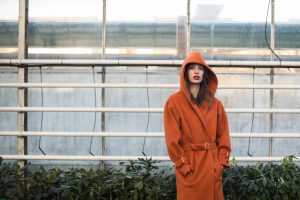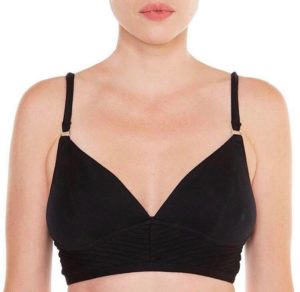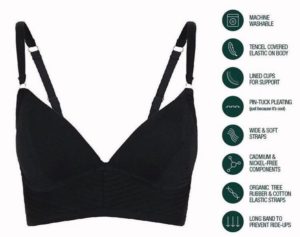Young consumers are changing the game. Fast fashion versus sustainability. It’s either one or the other…
The impact of the fashion industry on the development of our planet is often underestimated. Indeed, since fashion has a significant influence on achieving the UN Sustainable Development Goals (SDGs), it is crucial to disrupt the industry in order to meet the 2030 targets. And so, slow fashion is key.
Countering the pitfalls of this notorious industry is an emergency. As far as waste is concerned, the United Nations Economic Commission for Europe (UNECE) declared that this $2.5 trillion-dollar industry is the second highest user of water worldwide, producing 20 percent of global water waste. Furthermore, according to a 2017 report by Ellen MacArthur Foundation, the industry is responsible for 1.2 billion tons of greenhouse gas per year—more than that of the international air travel industry. It is worth noting that even the vegan trend of promoting “animal-friendly” fashion by using fur alternatives is environmentally destructive as many of the products produce synthetic fibres, are made from petroleum, and are non biodegradable.
In the City of Sydney, not only has there been an increased awareness around sustainable products among designers and shoppers, but there have also been revolutionary inventions in slow fashion. The following brands are great examples.
The Very Good Bra
Stephanie Devine has developed a bra, The Very Good Bra, which dissolves back into nature. The Sydney-based zero-waste bra is made entirely from compostable materials, including botanic fiber Tencel, one of the most environmentally friendly fabrics available; tree rubber elastic sourced from sustainable forests; and dyes that meet Global Organic Trading Standards. Interestingly, Devine was quickly able to raise funds to cover the expensive manufacturing costs of sustainable lingerie. This proves that Australian women are demanding a change to more environmentally-friendly fashion. Learn more here www.theverygoodbra.com
The Social Outfit
Because she knows it matters who makes our clothes, Jackie Ruddock, CEO of the company, is a social entrepreneur. In fact, her Sydney label’s mission is to empower refugee and new migrant communities through employment and training in the fashion industry, from clothing production to retail, design and marketing. A registered Incorporated Association, a recognised Public Benevolent Institution Charity, and an ethically accredited company by Ethical Clothing Australia, The Social Outfit regularly reports to the Australian Charities and Not-for-profits Commission (ACNC). With most fabric coming from designer donations, the company aims to reduce waste and promote up-cycling. Pieces are unique and tell amazing human stories. Learn more here www.thesocialoutfit.org
Brands like these are crucial for a successful turnaround of the fashion industry, from fast fashion to slow fashion trends. It is important to be aware of the amount of waste the industry is responsible for, as 85 percent of textiles are sent to landfills, i.e. 21 billion tons a year, in part resulting from a fast turnover. In fact, according to the Ellen MacArthur Foundation, the average number of times a garment is worn has decreased by 36 per cent globally in the past 15 years. Another source, McKinsey, determined in 2016 that the number of garments produced annually has doubled since 2000 and exceeded 100 billion for the first time in 2014: nearly 14 new apparel items for every person on Earth. If consumption continues at its current rate, there will be three times as many natural resources needed by 2050 compared to what was used in 2000.
Related Articles:

“AGURK, BREAKING FASH FASHION: AN INTERVIEW WITH CAMILLA KUUS”
 “40 COLORI: BRINGING YOU SUSTAINABLE FASHION FROM COMO, ITALY”
“40 COLORI: BRINGING YOU SUSTAINABLE FASHION FROM COMO, ITALY”
 “SUSTAINABILITY IN FASHION IS THE FUTURE: KRIE DESIGN”
“SUSTAINABILITY IN FASHION IS THE FUTURE: KRIE DESIGN”
Australia is showing tremendous progress in developing sustainable shopping and in promoting a slow fashion trend with two leading organisations. The first one is the Ethical Clothing Australia, a voluntary accreditation body working collaboratively with local textile, clothing and footwear (TCF) companies to ensure their Australian supply chains are transparent and legally compliant. In addition, one of the Five Growth Pillars of the Australian Fashion Council (AFC) is to develop industry practices in ethical and sustainable products by creating a collaborative space between the industry and NGOs.















